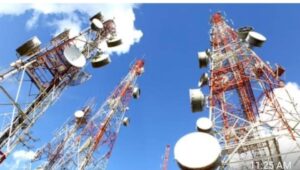Nigeria to Deploy 7,000 Telecom Towers, Prioritizing Northern Region in Landmark Connectivity Push
 The Federal Government of Nigeria has unveiled a bold and transformative initiative to deploy 7,000 new telecommunications towers across the country, with over 80 percent earmarked for Northern Nigeria. The move is aimed at bridging the deep-rooted digital divide and enhancing connectivity in regions with long-standing infrastructure gaps.
The Federal Government of Nigeria has unveiled a bold and transformative initiative to deploy 7,000 new telecommunications towers across the country, with over 80 percent earmarked for Northern Nigeria. The move is aimed at bridging the deep-rooted digital divide and enhancing connectivity in regions with long-standing infrastructure gaps.
The project, approved by the Federal Executive Council (FEC), represents a significant milestone in Nigeria’s ongoing digital transformation agenda.
The towers will support broader broadband access, 5G deployment, and improved service delivery in remote and underserved areas.
Speaking on the project, government officials emphasized that the initiative would serve as a cornerstone in Nigeria’s National Broadband Plan, which aims to achieve 90% broadband penetration by 2025, up from the current 48%.
The decision to allocate more than 80% of the new towers to Northern Nigeria reflects a deliberate effort to correct decades of infrastructural neglect in the region. Northern states have historically faced severe connectivity deficits, limiting access to education, healthcare, financial services, and economic opportunities.
“This is not just an infrastructure project; it’s a bridge to opportunity.
“By focusing resources on the North, we are addressing inequality and enabling millions of Nigerians to participate in the digital economy,” a senior government official stated.
The deployment of telecom towers will commence in the fourth quarter of 2025, alongside an even larger initiative to lay 90,000 kilometers of fiber optic cables nationwide. The combined projects are estimated to cost over ₦3.3 trillion.
A public-private partnership (PPP) model will be used to fund and manage the rollout, with the federal government retaining a 49% equity stake, and private investors holding the remaining 51%.
This model is expected to attract major investment while maintaining strategic national oversight.
The telecom tower deployment is one of several efforts being made to digitize Nigeria’s economy and empower its youth. Other major initiatives include:
• The Three Million Technical Talent (3MTT) Program, launched in 2023, has already trained over 117,000 Nigerians in tech skills such as software engineering, cybersecurity, and data analysis
• The AI Collective, launched with support from Google and Microsoft, places Nigeria among the top 60 countries for artificial intelligence readiness and aims to foster homegrown innovation in emerging technologies.
• Support for Startups, including a ₦300 million investment in AI- and blockchain-powered agritech ventures, and the launch of the Nigeria Startup House in San Francisco, which is projected to attract $5 billion in startup investments.
Analysts expect the telecom infrastructure expansion to have wide-reaching benefits, including:
• Improved digital access for rural communities
• Enhanced healthcare, education, and emergency services through connectivity
• Increased investor confidence in Nigeria’s digital and startup ecosystem
• New job opportunities in the ICT and telecom sectors
This major investment aligns with President Tinubu’s broader economic reform agenda and his administration’s commitment to positioning Nigeria as a leader in digital innovation in Africa.
As the country prepares for this digital leap, the focus remains clear: build a more inclusive, connected, and competitive Nigeria for the 21st century.







